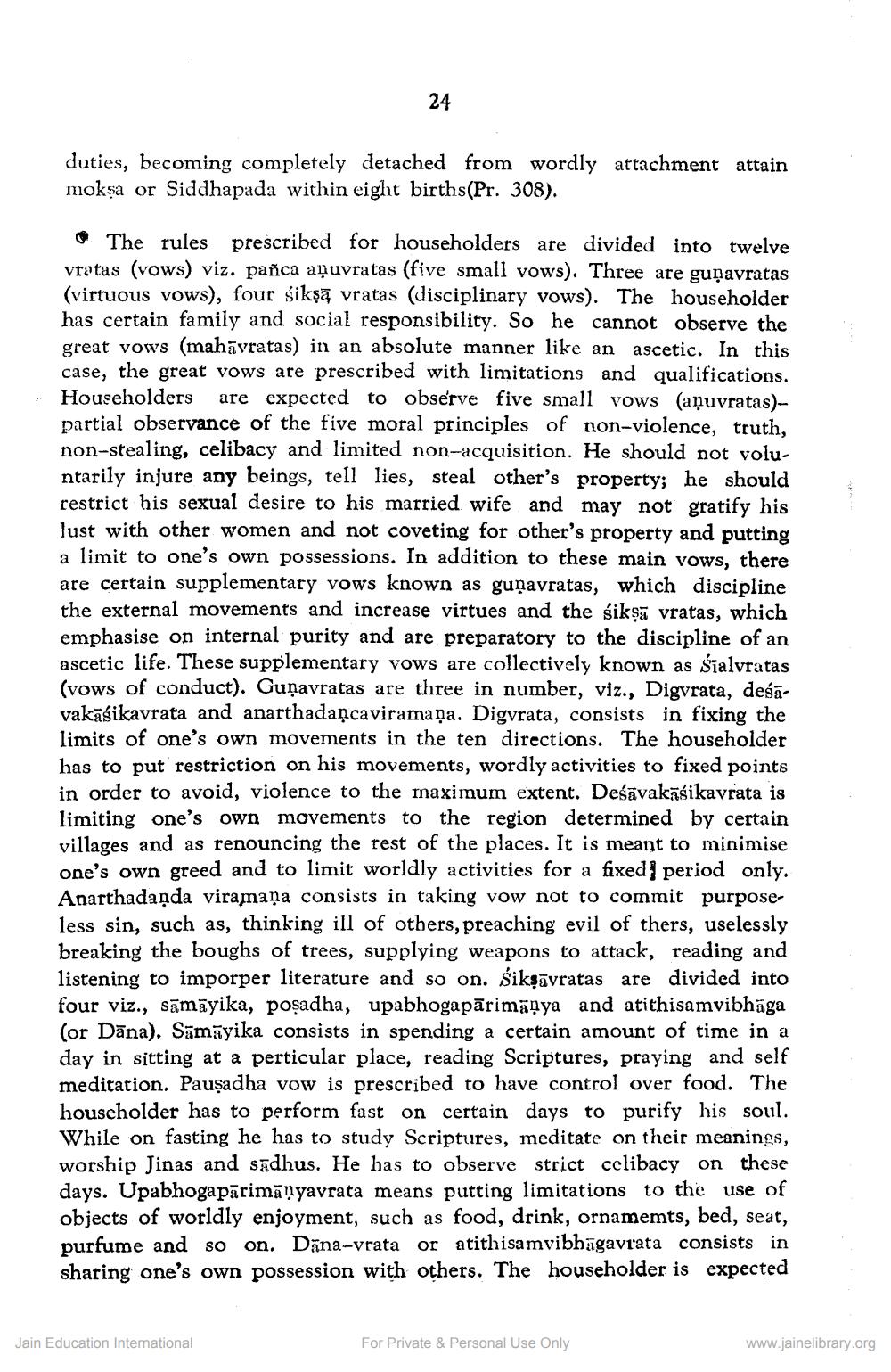________________
duties, becoming completely detached from wordly attachment attain mokṣa or Siddhapada within eight births(Pr. 308).
The rules prescribed for householders are divided into twelve vratas (vows) viz. pañca anuvratas (five small vows). Three are guņavratas (virtuous vows), four sikşā vratas (disciplinary vows). The householder has certain family and social responsibility. So he cannot observe the great vows (mahāvratas) in an absolute manner like an ascetic. In this case, the great vows are prescribed with limitations and qualifications. Householders are expected to observe five small vows (aņuvratas)partial observance of the five moral principles of non-violence, truth, non-stealing, celibacy and limited non-acquisition. He should not voluntarily injure any beings, tell lies, steal other's property; he should restrict his sexual desire to his married wife and may not gratify his lust with other women and not covering for other's property and putting a limit to one's own possessions. In addition to these main vows, there are certain supplementary vows known as guņavratas, which discipline the external movements and increase virtues and the sikşā vratas, which emphasise on internal purity and are preparatory to the discipline of an ascetic life. These supplementary vows are collectively known as Sialvratas (vows of conduct). Guņavratas are three in number, viz., Digvrata, deśā. vakasikavrata and anarthadancaviramaņa. Digvrata, consists in fixing the limits of one's own movements in the ten directions. The householder has to put restriction on his movements, wordly activities to fixed points in order to avoid, violence to the maximum extent. Deśavakāśikavrata is limiting one's own movements to the region determined by certain villages and as renouncing the rest of the places. It is meant to minimise one's own greed and to limit worldly activities for a fixed period only. Anarthadaņda viramaņa consists in taking vow not to commit purposeless sin, such as, thinking ill of others, preaching evil of thers, uselessly breaking the boughs of trees, supplying weapons to attack, reading and listening to imporper literature and so on. Śikṣāvratas are divided into four viz., sāmāyika, poşadha, upabhogapārimāṇya and atithisamvibhāga (or Dāna). Sāmāyika consists in spending a certain amount of time in a day in sitting at a perticular place, reading Scriptures, praying and self meditation. Pauşadha vow is prescribed to have control over food. The householder has to perform fast on certain days to purify his soul. While on fasting he has to study Scriptures, meditate on their meanings, worship Jinas and sadhus. He has to observe strict celibacy on these days. Upabhogapärimanyavrata means putting limitations to the use of objects of worldly enjoyment, such as food, drink, ornamemts, bed, seat, purfume and so on. Däna-vrata or atithisamvibhāgavrata consists in sharing one's own possession with others. The householder is expected
Jain Education International
For Private & Personal Use Only
www.jainelibrary.org




